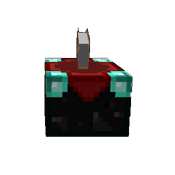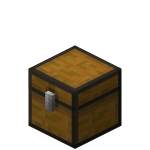Article I
Section I
All legislative Powers herein granted shall be vested in a Congress of the United States, which shall consist of a Senate and House of Representatives.
Section II...
Full text available at the US government transcript site.
the different sections of Article I.
 This article is all about the Legislative branch of the United States Government. Remember there are three branches; the Legislative, Executive, and the Judicial branch. Each branch has their own specific duties & responsibilities. The Legislative branch is where the rules are for Congress. The US Congress is divided into 2 sections; the House of Representatives and the Senate (that's why we have the nifty Roman senator skin on the right). I have provided an explanation of each section below although I highly recomend reading the original language at the government archive site either before or after reading my explanation. Ok, please stick with me since this is the largest section of the US Constitution.
This article is all about the Legislative branch of the United States Government. Remember there are three branches; the Legislative, Executive, and the Judicial branch. Each branch has their own specific duties & responsibilities. The Legislative branch is where the rules are for Congress. The US Congress is divided into 2 sections; the House of Representatives and the Senate (that's why we have the nifty Roman senator skin on the right). I have provided an explanation of each section below although I highly recomend reading the original language at the government archive site either before or after reading my explanation. Ok, please stick with me since this is the largest section of the US Constitution.
 Section I
Section I
This just says that the the powers defined in this Article of the US Constitution are for the Congress and not for any other branch of the government. By "legislative powers" they mean the power to pass new laws, other legal matters such as taxes, and approving the spending of government money.
Section II
Here they explain how the House of Representatives should be organized. Each member keeps their job for two years. Every two years a new election is held to choose the next person to get the job. The same person can apply for the job again and see if the people are happy enough with them to hire them for another two years. To try for the job the candidate has to be at least 25 years old and been a citizen of the United States for at least 7 years. Every state gets at least 1 representative and can have one for every 30,000 people living in their state. If something happens before their term is up then the state holds a new election for the rest of the current 2 years.
Every ten years the government counts the number of citizens in each state to figure out the number of representatives the states should have. That count is called the "Census" and is currently done with a list of questions mailed to every household in the United States for the citizens to fill out.
The House of Representatives has one of the most important powers for balancing the power of the President (the Executive Branch). The House has the power of "Impeachment" which means they can bring charges against the president if he is not doing his job or is breaking the law.
The head of the House of Representatives is called the "Speaker" of the house and is chosen by the House members.
This section is all about the Senate and how they are organized. The Senate has a longer term than the House of Representatives, Senators keep their job for 6 years. There are always 2 Senators from each state and they used to be chosen by the government of each state (the legislature to be exact). Senators are now elected every 6 years because of a Constitutional amendment passed in May of 1912. If a Senator has to leave before the job is done then either a new election will be held or in some states the Governor will appoint a replacement until the next term. Senators have to be at least 30 years old and been a citizen for at least 9 years.
The Vice President of the United States is the President of the Senate and only votes if the Senators are tied on a particular vote. The Senators do get to choose a "President pro tempore" which means a temporary president for when the Vice President of the US is not at their meetings.
While the House has the power to file chargews against the President for impeachment the Senators are the ones that try the case. The Chief Justice of the US is brought in to be the judge and the President can not be convicted unless two thirds (2/3) of the attending Senators agree. The only punishment the Senate can give is to remove the President from office and ban him from being President again. If what he did was bad enough then criminal charges can be brought in a regular court.
Is all about elections and when the Congress should meet. When and where and how the elections are done is decided by the Legislature of individual states (each state has their own group of representatives that work with the people and the governors of the state on internal state matters). The federal Congress can make changes to some of these rules if they pass a new law except for where the elections are held. The congress must meet at least once a year, the meeting used to be at the beginning of December but Congress changed the law in 1932. Congress now meets in January in order to better work out budget issues.
 Section V
Section V
This allows the Senate and the House to make rules to deal with disorderly behavior and to set up internal elections for positions such as the speaker and temporary president of the senate. They can even remove a member if two thirds (2/3) of the members agree. It specifies that Congress can force member to attend the session if they lack a quorum (a quorum is the number needed to proceed with a meeting, in this case they define it as a majority of the members). A quorum is required before any business can be voted upon.
Both houses of Congress are required to keep records of their meetings and voting record. The voting record is only required when one fifth of the members request the recording of the votes. The Senators and Representatives can't take more than a 3 day break from government business without the approval of the other house.
All about the gold (not really)! This section talks about the Senators and Representatives getting paid for their time. Since they are away from their personal businesses while doing the work of government they are not working whatever normal job they have when not representing the people.
 There is also a rule that while the Senate or House are in session the representatives can not be arrested while attending a session or on the way to a session. This is not a get out of jail free card, it is there to protect them from interference in their duties only and they can still be arrested at a later time or even during the session if the charge is treason, a felony or "Breach of the Peace." Breach of the peace essentially means a criminal action aginst another person. This rule was to keep people from interfering with the process of government with false allegations or minor infractions that could be handled later.
There is also a rule that while the Senate or House are in session the representatives can not be arrested while attending a session or on the way to a session. This is not a get out of jail free card, it is there to protect them from interference in their duties only and they can still be arrested at a later time or even during the session if the charge is treason, a felony or "Breach of the Peace." Breach of the peace essentially means a criminal action aginst another person. This rule was to keep people from interfering with the process of government with false allegations or minor infractions that could be handled later.
Who do we tax now? This section deals with money also and with how bills are passed into law. Bills that are for raising revenue (taxes, import fees, and other government fees) have to come from the House of Representatives. The Senate is allowed to suggest modifications but they can not create their own bill unless the House has already proposed something.
It takes more than just the vote in the Senate and the House of Representatives to get the bills passed. Once the bill passes Congress it goes to the President for his approval as well (part of those checks and balances to limit the other branches of government). If the President agrees that the law is correct and within the constitution he signs it into law. If he disagrees with all or part of the law he sends it back to Congress with notes on what he thinks needs to be fixed. Congress will reconsider the law and make any changes they think are necessary before voting again (this is one of the cases where they have to record the votes for and against). If two thirds of the original house vote yes then the modified bill goes back to the other house. If the other house votes two thirds yes as well then the bill goes back to the President. The President has three choices at that point; sign the bill into law, send it back again, or ignore it completely. If he ignores it the bill becomes law after ten days even if he didn't sign it into law.
Section VIII
This is a list of the powers granted to Congress. They include sections on spending money, taxes, hiring soldiers, declaring war and many other items.
Powers of Congress
- Pass tax laws and collect taxes (to pay for defense other government duties) as long as they are the same all over the country.
- Regulate commerce with other countries, native american tribes and between the states.
- Compose rules for immigration and bankruptcy laws as long as they are the same for the whole country.
- Print money and regulate its value as well as decide on the standard of weights and measures used in the US. Weights & Measures were especially important back then since they used silver and gold coins by weight instead of paper money. Paper money came later and was originally valued at a certain wieght of gold or silver for exchange.
- To set punishments and laws about making fake money or financial certficates of the United States.
- Fund and make post offices and roads for postal use to provide mail delivery.
 Promote science and invention by protecting the inventor's exclusive right to his invention for a limited time (this is where patent and copy right law comes from). Basically the inventor gets exclusive rights to make and market their invention for a time before anyone elese can make an identical product.
Promote science and invention by protecting the inventor's exclusive right to his invention for a limited time (this is where patent and copy right law comes from). Basically the inventor gets exclusive rights to make and market their invention for a time before anyone elese can make an identical product.- To organize, regulate, and create lower courts than the Supreme Court. This allows Congress to pass laws to make new lower courts and organize older ones as long as what they do isn't forbidden elsewhere and does not interfere with the courts working smoothly.
 Laws and regulations about Piracy and other major crimes on the high seas. This allows Congress to decide how to deal with and punish pirates and other criminals on the waters outside of the United States and other countries. It also covers punishment for people who attack ambassadors and other international matters.
Laws and regulations about Piracy and other major crimes on the high seas. This allows Congress to decide how to deal with and punish pirates and other criminals on the waters outside of the United States and other countries. It also covers punishment for people who attack ambassadors and other international matters.- Declaring war and giving out "Letters of Marque & Reprisal" is next. While the President is the commander of the US armed forces he is only allowed to defend against attacks unless the Congress votes for war to be declared. A letter of Marque & Reprisal is an interesting thing, it is permission given by the government for someone to become a privateer. A privateer is like a pirate who works for one country against other countries and groups. Privateers pay for their own equipment and supplies instead of the government paying them like the military. They make up for their costs by seizing other pirate ships and vessels and property belonging to the government or group at war with our country.
- Building and paying for armies for limited time periods. The Congress can build an army and pay for it as long as they only pay for 2 years at a time. Originally this was supposed to keep the country from having a permanent professional military. Armies would be raised from the citizens in times of need.
 To organize and pay for a Navy. The navy was considered to be necessary as a permanent force because of the need to protect the US cities along the coast from pirates and as the first defense against invasion.
To organize and pay for a Navy. The navy was considered to be necessary as a permanent force because of the need to protect the US cities along the coast from pirates and as the first defense against invasion. - Write rules and regulations for the Navy, Army, and government of the United States. These are the rules that the groups have to follow, for example the military has a set of rules called the "Uniform Code of Military Justice" that provides the laws that people in the military have to live by (they have to follow the regular law in the US as well).
- Call up the Militia to deal with threats of invasion and other dangers. The militia is divided into 2 types; the "organized" militia and the "unorganized" militia. The organized militia would meet regularly for training and practice (today that would be the National Guard). The organized militia is taken care of on a state and local level. The unorganized militia used to refer to every man between 18 and 45 but now also covers women so it is all citizens between 18 and 45 years old. Unorganized means they don't meet formally and are not part of an official government group.
- Provide for the organizing and arming of the Militia whenever they have been called to active service (although the states get to pick the officers running the show). Basically the Congress has to pay the bills when they need the militia to help fight a war or handle an emergency.
- Organize and pay for the plot of land and local government where the federal government of the United States makes their home (Washington D.C.). All the things a local city or county government would take care of regularly the Congress has to organize and fund.
- To make any laws they need to properly use the powers given them above. This means they can make new laws and regulations as long as they are part of the rules listed in the constitution but it limits them to only the ones really needed to get the job done and not just anything they feel like.
Section IX
People from other countries would be able to move or be imported into the US without interference by the Congress until the year 1808 (this was so the states could slowly change their rules to match the federal rules). They did agree to a tax of up to 10 dollars for each person coming to the United States. This clause is the one that allowed slavery to continue at the time and was the cause of a great argument. North Carolina and Georgia both stated they would not join the union without some protection. Many other founders made strong arguments against slavery during the convention but had to compromise in order to get the new union completed. This decision would cause problems in the mid 1800s and lead to the Civil War.
Wierdly the next part of section nine talks about the "writ of habeas corpus" which is what a court would ask for from anyone holding a prisoner. The writ is supposed to provide the legal reasons why a person has been put in jail. There has to be a good legal reason and at least some evidence in order to put someone in jail before they go to trial. It was meant to keep bad folks in legal or government offices from throwing just anyone they felt like into a cage.
Originally section nine kept Congress from making a direct income tax, but the rule was changed with an amendment in 1909 to allow income tax. Another tax that Congress was not allowed was a tax on items moved out of any state in the US. If you wanted to sell your diamonds or extra wheat to a villager in the next state or all the way down in Mexico congress is not allowed to charge you an extra fee or tax just to export your items. Congress is not allowed to play favorites when it comes to the port used to move those items either.
 Congress is not allowed to spend money without passing a bill just for spending the money. They also have to keep records of the money spent and where it is spent. They even have to make those records available to you and I regularly so we can check up on them!
Congress is not allowed to spend money without passing a bill just for spending the money. They also have to keep records of the money spent and where it is spent. They even have to make those records available to you and I regularly so we can check up on them!
Finally, section nine says that there are no lords or ladies in the US. In fact there is a rule keeping anyone in the government from accepting a gift or a title of nobility from any other country without permission from Congress. This is to keep foreign countries from paying government workers in the US for special favors.
Section X
You are in luck! This is the final section of Article 1 of the US Constitution. The rest of theArticles are considerably shorter, I promise!
Section 10 is all about keeping the states from stepping on Congress' toes. There are certain things the federal government is supposed to handle and those are not something the states should mess with or they could cause problems for the whole country. States are not allowed to do anything on the naughty list below.
 States are not allowed to make treaties or alliances with other governments. On the same subject; they are not allowed to declare war or make deals with privateers (Letters of Marqueu and Reprisal, remember those?).
States are not allowed to make treaties or alliances with other governments. On the same subject; they are not allowed to declare war or make deals with privateers (Letters of Marqueu and Reprisal, remember those?). - States are forbidden from making any money but gold and silver coin a way to pay bills. Remember that Congress is supposed to set the rules for money as well as the weightes & measures standards. If a state started accepting macaroni art to pay tax bills that would make it hard to exchange with the federal government (and it would be really weird, how much is macaroni art worth anyway?).
 They aren't allowed to grant titles of nobility or pass laws interfering with legal contracts. I guess my dream of being the Duke of Florida will have to stay a dream.
They aren't allowed to grant titles of nobility or pass laws interfering with legal contracts. I guess my dream of being the Duke of Florida will have to stay a dream. - States, just like the federal government, are not allowed to pass "Ex Post Facto" laws. That means they can't pass a law that makes something that already happened or an item that is already owned illegal. The can make laws aimed at new building and new actions but they have to have an exception for actions bevore the date of the bill. This means a new rule could be made to stop people from jumping up and down in the classroom, however, you couldn't use it to punish someone who jumped up and down a week before the rule was passed.
- None of the states are allowed to charge fees or taxes on imported items without Congresses permission unless they are just to cover the cost of inspection. Any left over money after the costs have to be given to the federal government since the rules for commerce are supposed to be set by Congress.
- The states are no allowed to maintain their own navy or army. They are also forbidden to make a deal with another state or a treaty with another country involving war unless they are under attack or have an urgnt need to defend themselves on very short notice. For example Florida would not be allowed to make a deal with Mexico to give them special treatment or agree to defend them because that would make the whole United States have to get involved. Now if a load of pirates decided to invade Florida in search of the lost fountain of youth THEN Florida could gather any forces needed to fight the pirates until Congress could declare war or a state of emergency.





